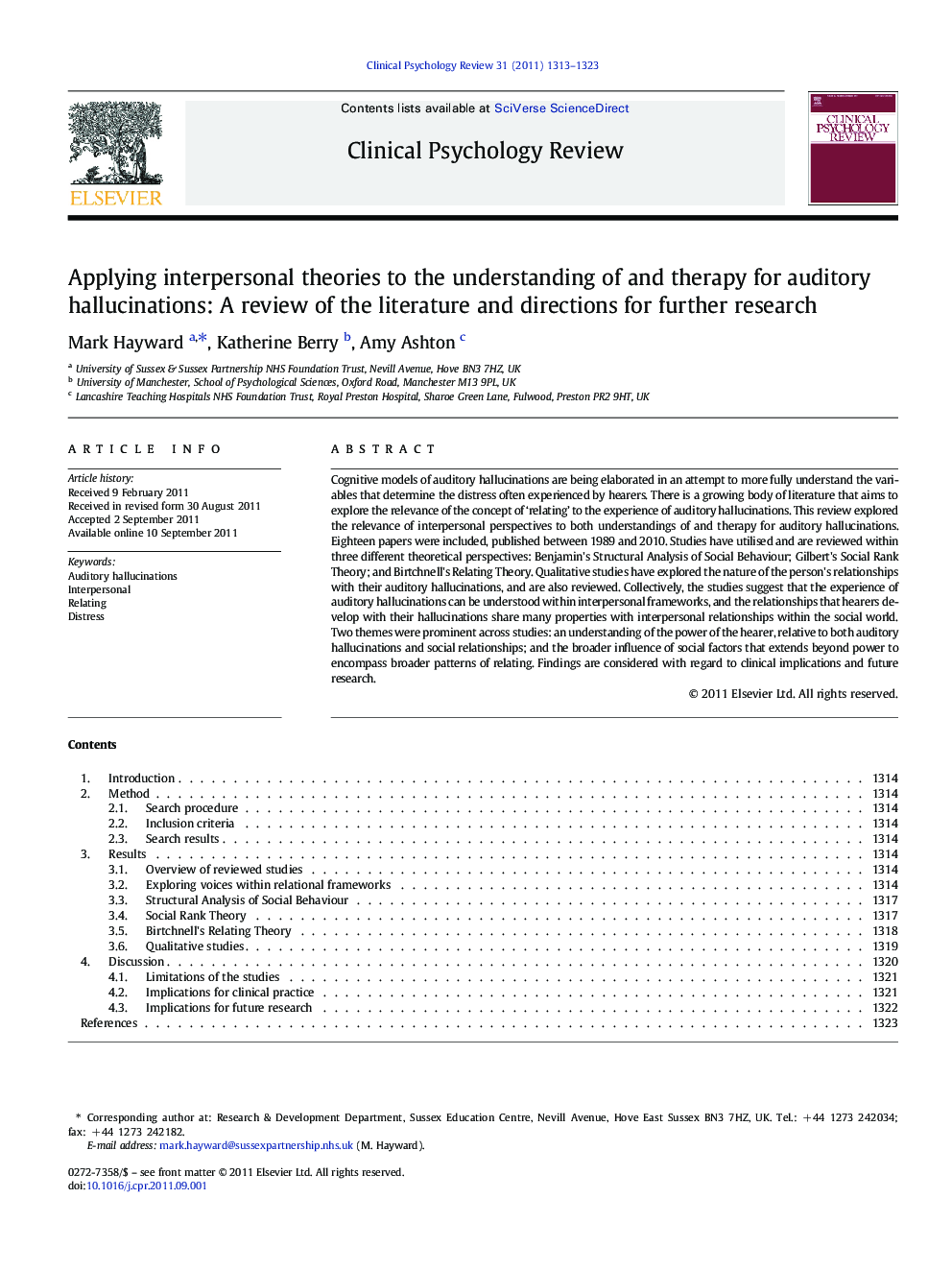| کد مقاله | کد نشریه | سال انتشار | مقاله انگلیسی | نسخه تمام متن |
|---|---|---|---|---|
| 903732 | 916588 | 2011 | 11 صفحه PDF | دانلود رایگان |

Cognitive models of auditory hallucinations are being elaborated in an attempt to more fully understand the variables that determine the distress often experienced by hearers. There is a growing body of literature that aims to explore the relevance of the concept of ‘relating’ to the experience of auditory hallucinations. This review explored the relevance of interpersonal perspectives to both understandings of and therapy for auditory hallucinations. Eighteen papers were included, published between 1989 and 2010. Studies have utilised and are reviewed within three different theoretical perspectives: Benjamin's Structural Analysis of Social Behaviour; Gilbert's Social Rank Theory; and Birtchnell's Relating Theory. Qualitative studies have explored the nature of the person's relationships with their auditory hallucinations, and are also reviewed. Collectively, the studies suggest that the experience of auditory hallucinations can be understood within interpersonal frameworks, and the relationships that hearers develop with their hallucinations share many properties with interpersonal relationships within the social world. Two themes were prominent across studies: an understanding of the power of the hearer, relative to both auditory hallucinations and social relationships; and the broader influence of social factors that extends beyond power to encompass broader patterns of relating. Findings are considered with regard to clinical implications and future research.
► Auditory hallucinations can be understood within interpersonal frameworks.
► Hearers can take an active role in relation to their voice.
► The influence of social factors extends beyond power.
► Formulation of voices should include a comprehensive interpersonal history.
► Relationally based therapies hold promise for improving voice–hearer relationships.
Journal: Clinical Psychology Review - Volume 31, Issue 8, December 2011, Pages 1313–1323